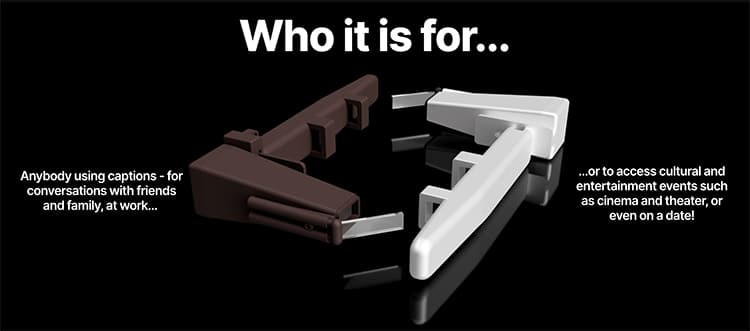However, methods such as hearing aids and cochlear implants can be very expensive to acquire.
Its 2017, Lavakare recalled thinking, as explained toThe Stanford Daily.
Why isnt there something that can help my friend participate in conversations in a mainstream setting?

TranscribeGlass technology. (Photo:TranscribeGlass)
In 2021, Tom Pritsky, Stanford M.S.
23, became a co-founder, bringing a hearing loss perspective to the team.
I really like captions for movies, Pritsky told the school paper.
I thought it would be fantastic to have them for real life.
The user can change the size of the text to suit the scene.
It can also assist in environments which may befuddle even hearing aids, such as crowded spaces.
The beta version of TranscribeGlass sold for $55, and eventually it will likely settle at $95.
Over 300 people have tested the product during its development, an important factor in a community-serving product.
Equalizing access is a worthy goal, because no one should be left out of the conversation.